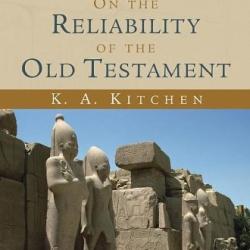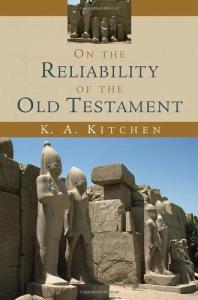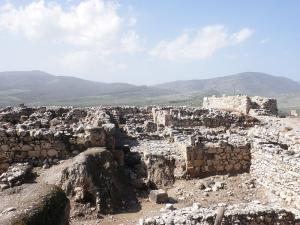With Emphasis on the Term “Son of God” Applied to Jesus in Matthew, Mark, and Luke, and Its Implications

Bart Ehrman is one of the most well-known and influential critics of traditional Christianity and the inspired Bible (“anti-theists”) writing today. Formerly, in his own words, he was “a fundamentalist for maybe 6 years; a conservative evangelical but not extreme right wing for maybe 5 years more; and a fairly mainstream liberal Christian for about 25.” The primary reason he gives for having lost his faith is the problem of evil (a very serious topic I have dealt with many times). He stated on 3-18-22 in a comment on his blog: “I could no longer explain how there could be a God active in this world given all the pain and misery in it.” I don’t question his sincerity, good intentions, intellectual honesty, or his past status as a Christian; only various opinions which Christians must (in consistency) regard as erroneous.
Dr. Ehrman “received his PhD and MDiv from Princeton Theological Seminary, where he studied textual criticism of the Bible, development of the New Testament canon and New Testament apocrypha under Bruce Metzger.” He has written 30 books, which have sold over two million copies and have been translated into 27 languages.
Ehrman explains that the purpose of his blog is “to disseminate scholarly knowledge of the New Testament and the earliest periods of the Christian church to a non-scholarly audience, . . . Every post is rooted in scholarship – not just my own but that of thousands of scholars who have worked for centuries on understanding the historical Jesus, the New Testament, and the origins of Christianity.” Well, the conclusions of scholars are only as good as the solidity and truthfulness of the premises by which they are operating.
This is one of a series of reply-papers, in which I will address many of his materials from the perspective of archaeology, history, and exegesis.
*****
I am responding to his article, “In What SENSE is Jesus “God” in Matthew, Mark, and Luke? My Change of Mind” (2-28-21). His words will be in blue.
There is nothing like these self-declarations of Jesus [in John] in the Synoptic Gospels. He does not go around talking about his divine character and pre-existent origin. In the older, traditional, terminology, the Synoptics present a “lower” Christology then the “high” Christology of John. And so, for many years, I argued that they did not see Jesus as God.
It still think it is true that the Synoptic Gospels do not portray Jesus as a pre-existent being who has become incarnate and is and always has been “equal” with God the way John does. They do not have an incarnational Christology lurking somewhere behind them. What they do have, however, is an exaltation Christology, in which either (a) Jesus was understood to have been exalted to a divine status at his baptism, as in Mark
Mark teaches no such thing. Here is the passage:
Mark 1:9-11 (RSV) In those days Jesus came from Nazareth of Galilee and was baptized by John in the Jordan. [10] And when he came up out of the water, immediately he saw the heavens opened and the Spirit descending upon him like a dove; [11] and a voice came from heaven, “Thou art my beloved Son; with thee I am well pleased.”
God the Father simply stated (publicly) that Jesus was His Son; not that He became His Son (or divine). The latter elements are simply read into the text by skeptics; i.e., it is eisegesis, which means reading into a biblical text (from preconceived notions) what isn’t there. If it were actually in the passage, it would read something like, “Thou art now my beloved Son” or “Thou hast now become my beloved Son”. That’s what it would look like, if this heretical notion were actually taught in the passage.
and the original form of Luke (which began with ch. 3, before chs. 1-2 were tacked on in a second edition);
This is the same erroneous eisegesis applied to Luke. And of course, Ehrman has no actual evidence to suggest that Luke used to begin with its present chapter 3. As with virtually all of the speculation about why the Gospel writers wrote what they did; their motivations and methodologies, it’s all sheer speculation and mere purely subjective fairy tales devised in skeptical and atheist brains, with no evidence whatsoever able to be set forth as the reason for why they think as they do.
They want to believe in these mythical goings-on, and so they do. It’s as simple as that. It’s not a rational process. It’s a mythical, fairy-tale process, borne in existing skepticism and cynicism. Simply because they spout these myths about the Evangelists is no evidence or reason for anyone else to believe in their fairy-tales and conspiratorial fantasies.
or (b) Jesus came into existence as the Son of God because God was the one who made his mother pregnant, as in the second edition of Luke that started with chs. 1-2 and probably in the Gospel of Matthew.
It stands to reason that if God the Father is uniquely your Father, that you are the Son of God. This is biblical teaching. But “Son of God” in the Jewish mind at the time also meant “making yourself God” (Jn 10:33).” “Son of God” (referring to Jesus) appears 16 times in the Synoptic Gospels. It’s applied to Jesus even by the devil (Mt 4:3, 6; Lk 4:3, 9), demons (Mt 8:29; Mk 3:11; Lk 4:41), (rhetorically and provocatively) by the high priest (Mt 26:63), and by mockers when He was dying (Mt 27:40, 43).
Followers worshiped Jesus and said “Truly you are the Son of God” (Mt 14:33; cf. Jn 1:49-50; 11:27) and He didn’t reject this at all (as He certainly would have if He didn’t believe Himself to be that). The high priest said, “tell us if you are the Christ, the Son of God” (Mt 26:63; cf. Jn 11:27; 20:31), which proves that the Jews connected “Son of God” with the Messiah (“Christ” being Greek for “Messiah”). Luke 4:41 also notes that demons “knew that he was the Christ.”
It’s true that John elaborates further about “Son of God”, but the same essential elements are already present in Matthew, Mark, and Luke. Jesus expressly refers the term to Himself in John 5:25; 10:36; 11:4. But He had already accepted the title as addressed to Him (Mt 14:33), which is logically the same thing. In Mark’s Gospel, Jesus, under direct questioning of the high priest, claims to be the Son of God, the Messiah, and the Son of man, all-in-one:
Mark 14:61-62 . . . Again the high priest asked him, “Are you the Christ, the Son of the Blessed?” [62] And Jesus said, “I am; and you will see the Son of man seated at the right hand of Power, and coming with the clouds of heaven.” (“I am” in the parallel passages is rendered as “You have said so”: Mt 26:64, and “You say that I am”: Lk 22:70; meaning, basically, “yes: you have stated it correctly”; also, Jesus said, along the same lines, “If I tell you, you will not believe”: Lk 22:67)
The reaction of the high priest and the Pharisees, Sanhedrin, etc., after Jesus asserted that He was the Son of God / Son of man, and the Messiah was “He has uttered blasphemy” (Mt 26:65), “He deserves death” (Mt 26:66), “‘You have heard his blasphemy. . . .’ And they all condemned him as deserving death” (Mk 14:64). All of this proves, of course, that He made the claims and that the hostile hearers knew exactly what He meant: that He was God in the flesh. They disbelieved it, so they immediately regarded it as the blasphemy of a liar and pretender. This was already the same dynamic that we also observe in John:
John 5:18 This was why the Jews sought all the more to kill him, because he not only broke the sabbath but also called God his Father, making himself equal with God.
John 10:30-36 I and the Father are one.” [31] The Jews took up stones again to stone him. [32] Jesus answered them, “I have shown you many good works from the Father; for which of these do you stone me?” [33] The Jews answered him, “It is not for a good work that we stone you but for blasphemy; because you, being a man, make yourself God.” [34] Jesus answered them, “Is it not written in your law, ‘I said, you are gods’? [35] If he called them gods to whom the word of God came (and scripture cannot be broken), [36] do you say of him whom the Father consecrated and sent into the world, ‘You are blaspheming,’ because I said, ‘I am the Son of God’?”
So it is more explicitly presented in John, but all the essential elements are in the other three Gospels, too. Therefore, Ehrman is dead wrong to assert that they aren’t in the other three Gospels. And I’ve only just begun laying out all the evidence.
Being adopted or born as the Son of God was a different way of being divine from being a pre-existent divine being made flesh. But it was still a highly exalted state of existence, above the human. And Jesus is that in the Synoptics.
Nonsense; He is presented as fully God in the Synoptics. I have already proven this by what is seen above, but I have much more evidence left to show.
For years I had difficulty explaining features of the Synoptics that could be taken to point to his divinity in some sense. I certainly had explanations, but I was never completely satisfied with them.
What Ehrman accepted then and now is Arian heretical slop: not the Jesus of the New Testament. I can see how this would provide much dissatisfaction, because it isn’t what the biblical texts exhibit.
In these Gospels, for example, Jesus has the power to forgive sins, and he receives “worship.” These *can* be explained without thinking of Jesus as in any way divine, but it’s a little bit tricky, and at the end of the day, I think it’s easier to simply to say that these things are said of Jesus because the authors do think of him as in some sense and exalted divine being.
Only God can be worshiped in the fullest sense (adoration), and this is how Jesus is presented in the Synoptics; therefore, He is God; period. Forgiving sins in His own name, with His own power, is also something only God can do. More on this below.
this exaltation of Jesus at the end of his life came to be read back into his life, so that stories were told about him in which he appeared to be divine in some sense already before he died.
This is the subjective, fairy-tale game I noted above. There is no actual historical evidence for any of this (if there were, you can be sure that Ehrman et al would certainly point to it). Ehrman and those like him want to believe it, since they deny the divinity / Godhood of Jesus and the Holy Trinity, so they pretend that it was added later and fantasize that it was supposedly not in the Synoptic Gospels at first. There is no way to prove when whatever was supposedly “added later.” All we have are the texts as they are now, passed down in extremely numerous, early, reliable, and consistent manuscripts.
Now (having cited Ehrman and having given him his “say” on my own blog) I shall present the full evidence of the Godhood / deity / divinity of Jesus as the third Person of the Holy Trinity, in the Synoptic Gospels.
Direct Statements of Jesus’ Equality with God the Father
Matthew 4:7 Jesus said to him, “Again it is written, ‘You shall not tempt the Lord your God.’” [the devil was tempting Jesus: 4:3, 5-6]
Matthew 13:15 For this people’s heart has grown dull, and their ears are heavy of hearing, and their eyes they have closed, lest they should perceive with their eyes, and hear with their ears, and understand with their heart, and turn for me to heal them. (cf. Mt 13:13-14 and Is 6:9-10) [Jesus is citing an Old Testament passage about God and applying it to Himself]
Judge of Mankind
Matthew 16:27 For the Son of man… will repay every man for what he has done. (cf. Rev 22:12; Ps 62:12; Is 40:10)
Matthew 25:32 Before him will be gathered all the nations, and he will separate them one from another as a shepherd separates the sheep from the goats, (cf. Ezek 34:17)
The Old Testament plainly taught that God was the judge of men:
1 Samuel 2:10 …The LORD will judge the ends of the earth… (cf. Gen 18:25; 1 Chr 16:33; Ps 7:11; 9:8; 96:10; Is 2:4; 33:22)
Psalm 50:6 The heavens declare his righteousness, for God himself is judge! (cf. 58:11; 67:4; 82:8; 94:2; Jer 11:20)
Ecclesiastes 12:14 For God will bring every deed into judgment, with every secret thing, whether good or evil. (cf. 3:17; Ezek 18:30; 33:20; Joel 3:12)]
Zephaniah 1:14-15 The great day of the LORD is near, near and hastening fast; the sound of the day of the LORD is bitter, the mighty man cries aloud there. [15] A day of wrath is that day, a day of distress and anguish, a day of ruin and devastation, a day of darkness and gloom, a day of clouds and thick darkness,
Psalm 2:9 You shall break them with a rod of iron, and dash them in pieces like a potter’s vessel.
Psalm 110:5-6 The Lord is at your right hand; he will shatter kings on the day of his wrath. [6] He will execute judgment among the nations, filling them with corpses; he will shatter chiefs over the wide earth.
Divine “I”
Jesus teaches in His own authority (“I say to you”) in the Sermon on the Mount (Mt 5:18-34, etc.), and many other passages. The prophets, in contrast, spoke as God’s messengers in the second person (“The Lord says…”). He often talks in a way in which only God could speak, and distinguishes Himself from the prophets (Mt 13:17). Perhaps the most striking example of this occurs in Matthew 23:
Matthew 23:34, 37 Therefore I send you prophets and wise men and scribes… [37] O Jerusalem, Jerusalem, killing the prophets and stoning those who are sent to you! How often would I have gathered your children together as a hen gathers her brood under her wings, and you would not! (cf. Jud 6:8; 2 Ki 17:13; 2 Chr 24:19; Jer 7:25; 25:4; 26:5; 29:19; 35:15; 44:4; Hag 1:12; Zech 7:12)
Luke 13:34 O Jerusalem, Jerusalem, killing the prophets and stoning those who are sent to you! How often would I have gathered your children together as a hen gathers her brood under her wings, and you would not! (cf. Mt 23:37; Dt 32:11-12; Ruth 2:12; Ps 36:7; 57:1; 63:7; 91:4)
Acceptance of Worship (Reserved for God Only)
Matthew 14:33 And those in the boat worshiped him, saying, “Truly you are the Son of God.” (cf. 8:2; 9:18; 15:25; 20:20)
Matthew 28:9 And behold, Jesus met them and said, “Hail!” And they came up and took hold of his feet and worshiped him. (cf. 28:17)
Mark 5:6 And when he saw Jesus from afar, he ran and worshiped him;
Mark 5:22 Then came one of the rulers of the synagogue, Ja’irus by name; and seeing him, he fell at his feet,
Mark 7:25 But immediately a woman, whose little daughter was possessed by an unclean spirit, heard of him, and came and fell down at his feet.
Mark 10:17 And as he was setting out on his journey, a man ran up and knelt before him, and asked him, “Good Teacher, what must I do to inherit eternal life?”
God alone is to be worshiped (as Jesus Himself noted):
Exodus 34:14 (for you shall worship no other god, for the LORD, whose name is Jealous, is a jealous God), (cf. 20:3)
Deuteronomy 8:19 And if you forget the LORD your God and go after other gods and serve them and worship them, I solemnly warn you this day that you shall surely perish. (cf. 11:16; 17:3; 29:26; 30:17; 1 Ki 9:6-9; Jer 16:11; 22:9; 25:6; Dan 3:28)
Luke 4:8 And Jesus answered him, “It is written, ‘You shall worship the Lord your God, and him only shall you serve.’” (cf. Mt 4:10)
Omniscient (All -Knowing)
Omniscience is implied (though not proven) in many passages that describe Jesus’ extraordinary knowledge; these are consistent with omniscience (Mt 9:4; 12:25; Mk 2:8; 14:13-15; Lk 5:22; 6:8; 9:47; 22:10-13).
Additionally, there are many other verses illustrating that Jesus knew the future perfectly, which is also consistent with, and suggestive of omniscience, though not a proof (Mt 12:40; 13:1; 16:21; 17:9, 11-12, 22-23; 20:18-19; 21:39; 24:2; 26:2, 12, 21, 31-34, 54; Mk 8:31; 9:31; 10:32-34; 14:9, 18, 27-30, 42, 49; Lk 9:22, 44; 11:30; 12:50; 17:25; 18:31-33; 22:15, 21-22, 32, 34, 37).
The Old Testament taught that God alone is omniscient:
1 Chronicles 28:9 …the LORD searches all hearts, and understands every plan and thought.… (cf. 1 Ki 8:39; 2 Chr 6:30; Ps 44:21; Is 66:18; Ezek 11:5; Mt 6:8; Lk 16:15)
Psalm 147:5 Great is our LORD, and abundant in power; his understanding is beyond measure. (cf. Job 36:4; 37:16; Is 40:28; 46:10; 48:3)
Omnipresent (Present Everywhere)
Matthew 18:20 For where two or three are gathered in my name, there am I in the midst of them.
Matthew 28:20 “. . . I am with you always, to the close of the age.”
God alone is omnipresent:
1 Kings 8:27 But will God indeed dwell on the earth? Behold, heaven and the highest heaven cannot contain thee…. (cf. 2 Chr 2:6)
Psalm 139:7-8 Whither shall I go from thy Spirit? Or whither shall I flee from thy presence? [8] If I ascend to heaven, thou art there! If I make my bed in Sheol, thou art there!
Jeremiah 23:24 Can a man hide himself in secret places so that I cannot see him? says the LORD. Do I not fill heaven and earth? says the LORD.
Forgives Sins in His Own Name
Mark 2:5, 10 And when Jesus saw their faith, he said to the paralytic, “My son, your sins are forgiven.”… [10] …the Son of man has authority on earth to forgive sins… (cf. Mt 9:2-6; Lk 5:20-24)
Luke 7:47-48 “Therefore I tell you, her sins, which are many, are forgiven, for she loved much; but he who is forgiven little, loves little.” [48] And he said to her, “Your sins are forgiven.”
God alone can forgive sins in His own name:
Exodus 34:7 keeping steadfast love for thousands, forgiving iniquity and transgression and sin,… (cf. 2 Sam 12:13; 1 Ki 8:34; Dan 9:9; Mic 7:18)
Psalm 25:11 For thy name’s sake, O LORD, pardon my guilt, for it is great. (cf. 25:7, 18; 32:1-2, 5)
Psalm 51:9 Hide thy face from my sins, and blot out all my iniquities. (cf. 65:3; 79:9; 85:2; 99:8; Is 1:18; 6:6; 44:22)
Psalm 103:12 as far as the east is from the west, so far does he remove our transgressions from us. (cf. 130:4)
Isaiah 43:25 I, I am He who blots out your transgressions for my own sake, and I will not remember your sins. (cf. 55:7)
Jeremiah 33:8 I will cleanse them from all the guilt of their sin against me, and I will forgive all the guilt of their sin and rebellion against me. (cf. 31:34; Ezek 33:15-16)
Luke 5:21 And the scribes and the Pharisees began to question, saying, “Who is this that speaks blasphemies? Who can forgive sins but God only?” (cf. Mk 2:7)
Jesus Taught that the Messiah (“Christ”) — Which He Claimed to Be — is Lord (Kurios) and God
Matthew 22:43-45 He said to them, “How is it then that David, inspired by the Spirit, calls him Lord, saying, [44] ‘The Lord said to my Lord, Sit at my right hand, till I put thy enemies under thy feet’? [45] If David thus calls him Lord, how is he his son?” (cf. Mk 12:36-37; Lk 20:42-44)
Every time the New Testament refers to Jesus as Christ (including Jesus’ own declarations), it is declaring that He is the Messiah, since Christ is the Greek for the Hebrew Messiah:
Matthew 16:16-17, 20 Simon Peter replied, “You are the Christ, the Son of the living God.” [17] And Jesus answered him, “Blessed are you, Simon Bar-Jona! For flesh and blood has not revealed this to you, but my Father who is in heaven.”… [20] Then he strictly charged the disciples to tell no one that he was the Christ. (cf. Mk 8:27-30; 9:41; Lk 4:41; 9:18-21; Jn 4:25-26)
See also Mt 1:16-18; 5:17; 11:2, 10; 21:42; 24:5, 23-24; 26:56, 68; 27:17, 22; Mk 3:11; 5:7; 13:21-22, 26; Lk 1:31-33; 2:11, 26; 4:20-21; 22:37; 23:2, 35, 39; 24:44.
Son of Man When Jesus calls Himself “the Son of Man” (e.g., Mt 10:23, 32-33; 19:28; 23:37 ff.; 24:47; Mk 2:19-20; 3:28-29; 8:31, 38; 9:9, 31; 10:33, 38; 14:21, 41; Lk 11:30; 12:8, 49-50; 17:24; 18:6, 8; 21:36; 22:27, 48), He is claiming to be the Messiah, since He is referring (especially in Mk 13:26; 14:62) to a well-known messianic passage:
Daniel 7:13-14 I saw in the night visions, and behold, with the clouds of heaven there came one like a son of man, and he came to the Ancient of Days and was presented before him. [14] And to him was given dominion and glory and kingdom, that all peoples, nations, and languages should serve him; his dominion is an everlasting dominion, which shall not pass away, and his kingdom one that shall not be destroyed.
In Mark 14:61-62, Jesus assumes that the Christ (Messiah) and the Son of Man are one and the same (Himself). Matthew 16:16-17 establishes the fact that the Messiah and “the Son of God” are identical as well.
Source of Eternal Words
Matthew 24:35 Heaven and earth will pass away, but my words will not pass away.
Compare to the Old Testament, referring to God:
Isaiah 40:8 The grass withers, the flower fades; but the word of our God will stand for ever.
Angels of Whom?
Matthew 13:41 The Son of man will send his angels, and they will gather out of his kingdom all causes of sin and all evildoers, (cf. 16:27; 24:31; Lk 15:10; Gen 28:12; 32:1; Lk 12:8-9)
Second Coming
Matthew 24:30 then will appear the sign of the Son of man in heaven, and then all the tribes of the earth will mourn, and they will see the Son of man coming on the clouds of heaven with power and great glory; (Mt 16:27; 26:64; Mk 14:62)
The Old Testament presents God coming in judgment in an identical way:
Isaiah 40:10 Behold, the Lord GOD comes with might, and his arm rules for him; behold, his reward is with him, and his recompense before him. (cf. 40:5; Ps 96:13; 98:9)
Isaiah 66:15-16 For behold, the LORD will come in fire, and his chariots like the stormwind, to render his anger in fury, and his rebuke with flames of fire. [16] For by fire will the LORD execute judgment, and by his sword, upon all flesh; and those slain by the LORD shall be many. (cf. 59:20; Joel 2:11; Zech 2:10)
Zechariah 9:14 Then the LORD will appear over them, and his arrow go forth like lightning; the Lord GOD will sound the trumpet, and march forth in the whirlwinds of the south.
Zechariah 12:10 …when they look on him whom they have pierced, they shall mourn for him, as one mourns for an only child, and weep bitterly over him, as one weeps over a first-born.
Zechariah 14:3-5 Then the LORD will go forth and fight against those nations as when he fights on a day of battle. [4] On that day his feet shall stand on the Mount of Olives which lies before Jerusalem on the east; and the Mount of Olives shall be split in two from east to west by a very wide valley;… [5]…. Then the LORD your God will come, and all the holy ones with him.
Isaiah 11:4 …he shall smite the earth with the rod of his mouth, and with the breath of his lips he shall slay the wicked.
Daniel 7:13 I saw in the night visions, and behold, with the clouds of heaven there came one like a son of man, and he came to the Ancient of Days and was presented before him.
Savior
Matthew 1:21 she will bear a son, and you shall call his name Jesus, for he will save his people from their sins.
Luke 2:11 for to you is born this day in the city of David a Savior, who is Christ the Lord.
Luke 19:10 [Jesus] For the Son of man came to seek and to save the lost. (cf. Jn 10:9; 12:47
Only God can be the savior of mankind:
Isaiah 43:11 I am the LORD, and besides me there is no savior. (cf. 43:3; 45:15, 21; 49:26; 60:16, 63:8; Hos 13:4)
Luke 1:47 and my spirit rejoices in God my Savior,
***
The evidence is overwhelming. See also my related paper: Deity of Jesus: Called Lord/Kurios & God/Theos [10-24-11]
***
Practical Matters: Perhaps some of my 4,000+ free online articles (the most comprehensive “one-stop” Catholic apologetics site) or fifty books have helped you (by God’s grace) to decide to become Catholic or to return to the Church, or better understand some doctrines and why we believe them.
Or you may believe my work is worthy to support for the purpose of apologetics and evangelism in general. If so, please seriously consider a much-needed financial contribution. I’m always in need of more funds: especially monthly support. “The laborer is worthy of his wages” (1 Tim 5:18, NKJV). 1 December 2021 was my 20th anniversary as a full-time Catholic apologist, and February 2022 marked the 25th anniversary of my blog.
PayPal donations are the easiest: just send to my email address: apologistdave@gmail.com. You’ll see the term “Catholic Used Book Service”, which is my old side-business. To learn about the different methods of contributing, including 100% tax deduction, etc., see my page: About Catholic Apologist Dave Armstrong / Donation Information. Thanks a million from the bottom of my heart!
***
Photo credit: Christ Crowned with Thorns (c. 1633-1639), by Matthias Stom (fl. 1615-1649) [public domain / Wikimedia Commons]
***
Summary: I prove through copious examples from Mark, Matthew, and Luke, that Jesus is God in the Synoptics, over against Bart Ehrman, who denies it on inadequate grounds.





























Pearce’s Potshots #40: Manure-Comments on His Blog
Jonathan MS Pearce’s blog, A Tippling Philosopher has no ostensible rules of conduct, so virtually anything goes, and it is open season on Christians. To be fair, Jonathan has at least feebly opined that he would like more civil discussion to occur in his environs (though he appears not to ever enforce such a notion). On 5-19-21 he wrote the post, “Another Comment Appeal” which included the following:
I already responded to this on 5-20-21. I had documented a “feeding frenzy” against me on his blog in a post dated 3-18-21; also a wholesale massive attack that took place on fellow anti-theist atheist Bob Seidensticker’s blog, in August 2018.
Pearce has written several recent posts wholly in response to me, or predominantly so. This has brought out (as always) the long fangs and the slanderers in his comboxes. I would like to document just a small sampling of these (no more than 10%, if that) of some of the worst from three comment threads, underneath the articles Chiasms, Multiple Sources, Armstrong, and Chasms in Rationality (7-7-21), Debunking the Genesis Flood I (7-4-21): below the ten asterisks; also a few more (bonus) from Ruddy Flood Thing Again. And Armstrong. (7-3-21): underneath the ten plus signs.
Still wanna be an apologist, and particularly to atheists? This is what it’s like. In-between this constant avalanche of worthless insults, a good conversation here or there can be had. But any anti-theist atheist forum (at least any I have ever seen, and that is 24 years of constant interaction online as an apologist) will end up like this if you dare to disagree as a Christian, and especially if you dare to forbid such slander on your own blog, as I do, and (horror of horrors!) ban foul-mouthed, acidic folks. Then you will be lied about and attacked like you never have been in your life.
***
***
I said that I had left Jonathan’s forum and “moved on” in May, but alas, I got drawn in when he wrote several posts that I responded to, and he counter-responded to. At first I would simply post notice of my reply. But people would start responding, and I’d get drawn in again. It’s clear now, however, that the only wise and prudent course is to totally ignore these atheist forum cesspools of fanatical hatred against any and all Christians who dare to dissent and make arguments disbelieved by the Faithful Believer-Atheists.
The few who are capable of sustaining a rational, civil, non-insulting discussion (and there are some, however few; every rule has its exceptions) can always come to my blog, where we engage in normal discourse.
I had been even more definite about leaving a month before, on Jonathan’s page, writing:
Jonathan specifically asked a month after that for “polite and civil discourse” and urged his minions of rabid followers to “simply deal with the ideas and do not attack the person.” They do so, anyway, and (here’s the thing) he does nothing about it.
*
In the end, there are other relevant Bible passages that would guide such a decision (after we gave it a shot):